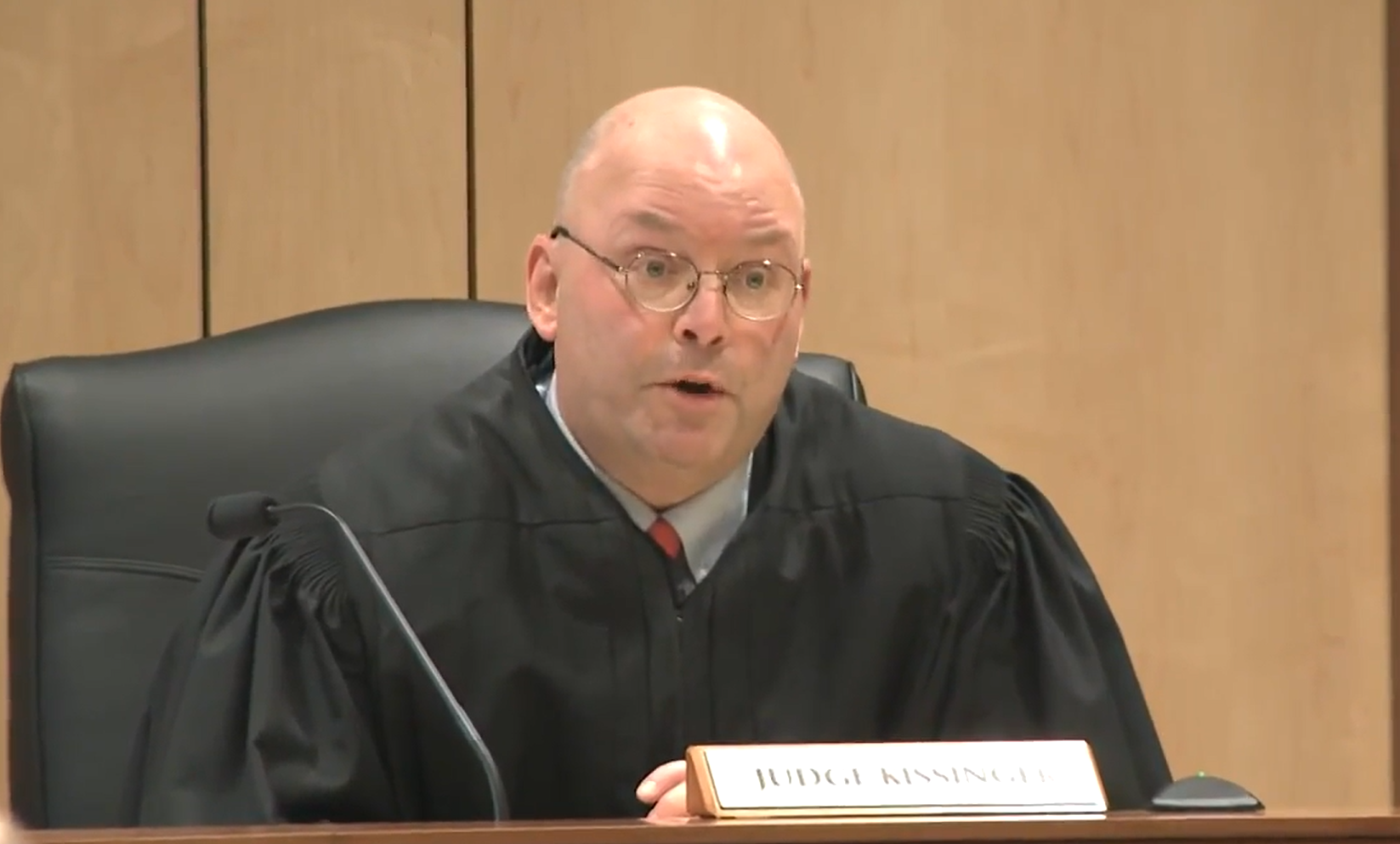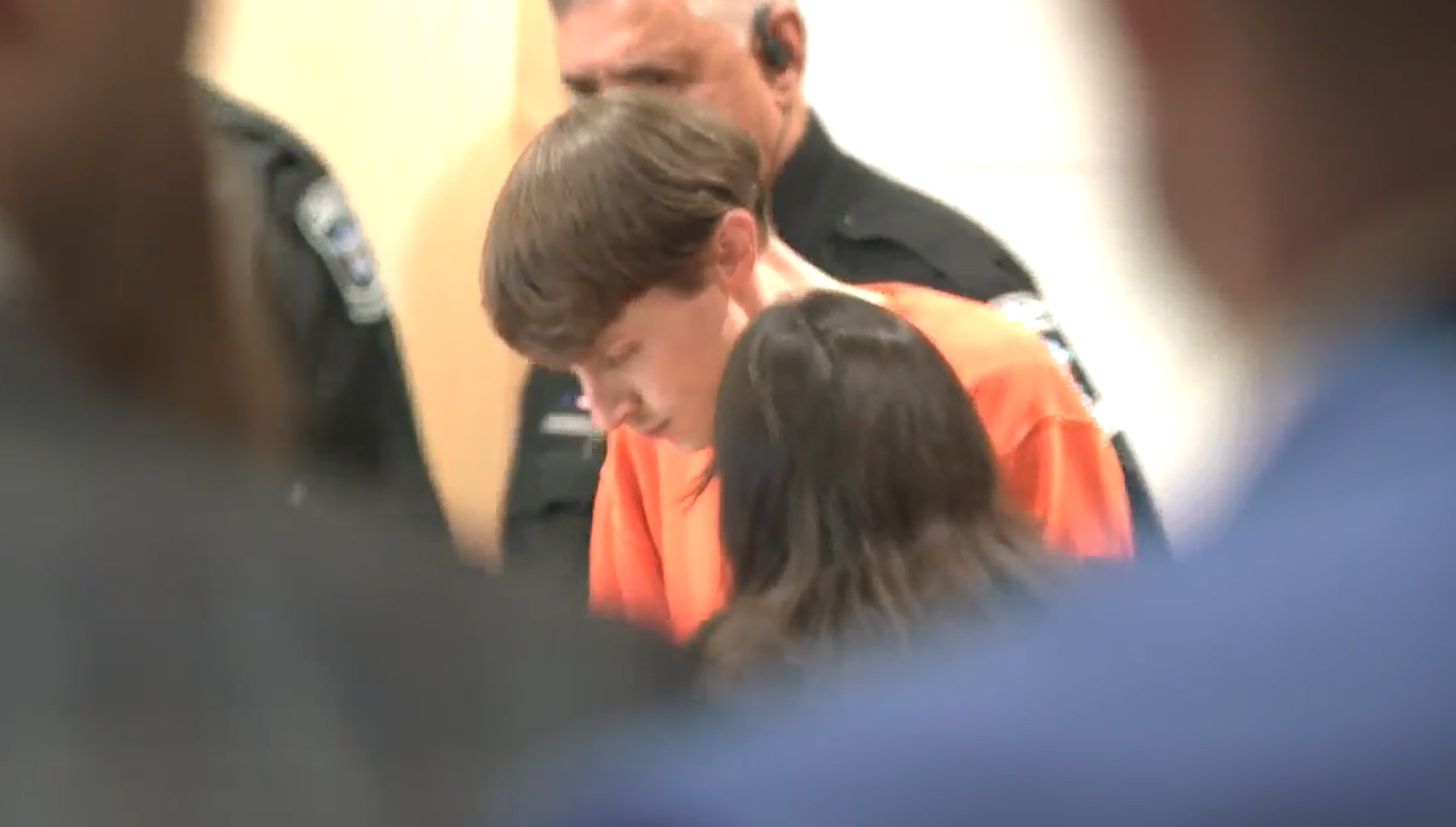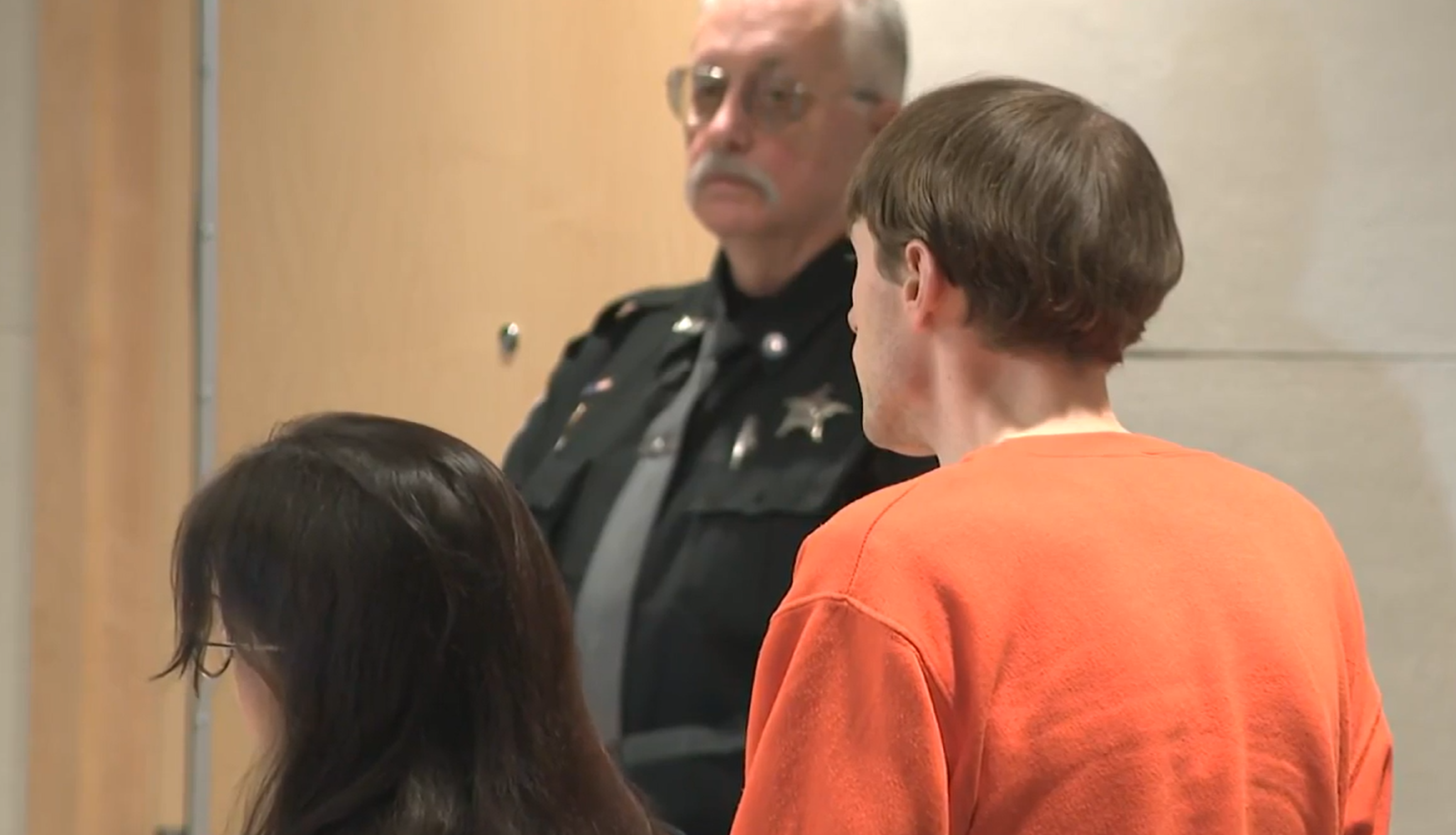Clegg sentenced to 50 years to life in Reid shootings
“Logan Clegg is a stone-cold, violent murderer, nothing more,” Judge John Kissinger said. “He shot and killed Steve and Wendy Reid for no reason. His statements today ring hollow. He deserves nothing less than a sentence that fully reflects the magnitude of his crimes…My hope in imposing this senten


CONCORD, NH —Logan Clegg, convicted in October of killing Djeswende and Stephen Reid in April 2022, was sentenced Friday to 50 years to life for each of the murders in Merrimack County Superior Court.
Judge John Kissinger imposed the maximum sentence, which was requested by the prosecutors earlier Friday, and will likely keep Clegg, who turns 28 in January, behind bars for the rest of his life.
“Logan Clegg is a stone-cold, violent murderer, nothing more,” Kissinger said. “He shot and killed Steve and Wendy Reid for no reason. His statements today ring hollow. He deserves nothing less than a sentence that fully reflects the magnitude of his crimes…My hope in imposing this sentence is that the defendant never again walks the streets as a free man.”
Clegg was convicted of two counts of second-degree murder for “knowingly causing the death” of each of the Reids — Djeswende, 66, and Stephen, 67 — as well as two of second-degree murder for “recklessly” causing the death of each of the Reids; four more for falsifying evidence and one of being a felon in possession of a firearm.

Unlike most of the three-week trial in October, every seat in the courtroom was taken Friday. Before Kissinger imposed the sentence, relatives of the Reids gave victim impact statements, and attorneys on both sides and Clegg himself spoke in an hour-long session.
Assistant Attorney General Meghan Hagaman requested the maximum sentence, 50 years to life. “There are times when a crime is so egregious and its conduct is so horrifying that it warrants one of the most significant sentences that we have in our state. The state submits that this is one of those times,” Hagaman said.
In a victim impact statement Friday, Brian Reid, the couple’s son, said, “My parents dedicated their lives to spreading compassion [and] kindness, through their humanitarian work worldwide. May the defendant’s name fade into the shadows he inhabits, his actions condemned, and his existence confined to four walls for as long as he remains, while those who knew Steve and Wendy dine out on their beautiful memories for generations.”
Clegg said he was innocent and plans to appeal his conviction. “Those detectives did everything in their power to cheat me out of getting a proper trial,” he said. “If it comes to a second battle I can promise my innocence will be made clear and I will win.”
He praised the work of his two attorneys from the New Hampshire Public Defender office, Caroline Smith and Mariana Dominguez, who were at his side Friday.

Clegg is convicted of shooting both of the Reids multiple times as they walked on a trail in the Broken Ground Trail System in northeast Concord on April 18, 2022. He did not know the couple. He had been living in a tent in the woods since the previous November, and was wanted on a warrant for skipping out on probation in Utah.
There was no evidence that tied him directly to the shooting except two shell casings that were found at the shooting scene by an assistant attorney general a month after it happened in an area that had been extensively searched. After Clegg’s arrest, the casings were found to match ones shot from the Glock 9mm pistol he had in his backpack, according to the New Hampshire State Police forensics lab. Bullet fragments at the scene, as well as a bullet the medical examiner found in Djeswende Reid’s head, were too damaged to determine caliber, make, or if they matched Clegg’s gun.
Prosecutors also asserted that Clegg’s actions right after the shooting, as well as in the months following, showed consciousness of guilt. These included leaving the area, wiping the history on his laptop and lying to police about when he left Concord and where he stayed while he was there.
The defense argued that Clegg was in the wrong place at the wrong time, and the state’s evidence was circumstantial, reflected confirmation bias, and didn’t tie him to the shootings. They particularly focused on the shell casings and their sudden appearance at a scene that had been so thoroughly searched.





